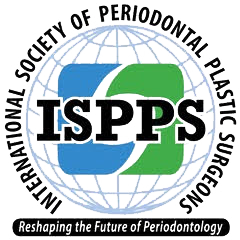How to Identify and Treat Dental Implant Problems
Dental implants are a revolutionary solution for replacing missing teeth, boasting an impressive success rate of over 95%. However, like any surgical procedure, there are potential risks and complications that patients should be aware of before undergoing treatment. By understanding these risks, you can make informed decisions about your oral health and prepare for the best possible outcomes.
At Maring Oral Surgery and Dental Implant Center, we aim to provide clarity and reassurance at every step of your oral health journey by offering comprehensive care tailored to your specific needs. Call our Seattle dental practice at 206-343-7500.
How Maring Oral Surgery and Dental Implant Center Can Help
At Maring Oral Surgery and Dental Implant Center in downtown Seattle, our experienced team, including oral surgeons and a periodontist, deliver exceptional care. By leveraging advanced technology and extensive expertise, we minimize the risks associated with dental implant procedures. Whether you need an initial consultation or a second opinion, our collaborative approach ensures a comprehensive evaluation of your oral health.

Common Risks Associated with Dental Implants
Infection
Infection at the site of the implant is one of the primary risks associated with dental implant surgery. It can manifest through symptoms such as swelling, pain, redness, and discharge. If you experience any of these symptoms, immediate consultation with your dentist is crucial to prevent further complications.
Dental Implant Failure
Despite the high success rates, some implants may fail if they do not properly integrate with the jawbone. Factors such as inadequate bone density, poor oral hygiene, or improper placement can contribute to this issue. Replacing the implant may be necessary to restore dental health.
Nerve or Tissue Damage
During the procedure, accidental nerve or tissue damage can occur, leading to discomfort or numbness in the lips, cheeks, or tongue. Careful planning and precise surgical techniques are essential to minimize these risks, and any unusual sensations should be promptly addressed by your dental care provider.
Sinus Problems
For implants in the upper jaw, proximity to the sinus cavities can sometimes lead to complications if the implant penetrates the sinus cavity. This situation may cause sinusitis or other sinus-related issues, necessitating careful evaluation before and after the surgery.
Allergic Reactions
Although rare, some patients may experience allergic reactions to materials used in implants, such as titanium. These reactions can cause itching, rashes, or more severe symptoms in hypersensitive individuals.

Factors That May Increase Dental Implant Risks
Certain factors can heighten the likelihood of complications during or after dental implant surgery. These include:
- Smoking: Smoking hinders the healing process, increasing the risk of infection and implant failure.
- Insufficient Bone Density: Dental implants require a strong foundation of bone. Bone grafting may be necessary for patients with insufficient bone.
- Chronic Health Conditions: Conditions such as diabetes, autoimmune disorders, or osteoporosis can impact healing and increase the risk of complications.
- Medications: Blood thinners and other medications may elevate the risk of bleeding or impede recovery.
Implants are subject to failure from misalignment, poor impressions, or mechanical failure. Misalignment can result in unnatural aesthetics and affect gum integrity, while inadequate impressions could lead to ill-fitting crowns, necessitating replacement.
Complications Post-Dental Implant Surgery
Loosening or Shifting
Over time, an implant might become loose if it does not integrate correctly with the bone, affecting both comfort and appearance. Regular checkups and adjustments might be required to maintain the stability and aesthetic of the implant.
Peri-Implantitis
This form of gum disease around the implant is a serious concern, caused by bacterial infection, potentially leading to bone loss and failure. Adequate oral hygiene and regular dental visits are crucial for prevention and early detection.
Implant Fractures
Although less common, implant fractures due to excessive force or trauma can occur. Ensuring proper use and care of implants can help mitigate this risk.

Reducing the Risk of Complications
While no procedure is entirely risk-free, several steps can help mitigate potential complications:
- Choose a Skilled Team: Seek out oral surgeons and periodontists with extensive training and proven track records in dental implant procedures.
- Maintain Excellent Oral Hygiene: Regular brushing, flossing, and dental checkups are essential for long-term implant success.
- Follow Post-Operative Instructions: Adhering to post-surgery care guidelines significantly reduces the risk of infection and other issues.
- Avoid Smoking: Refrain from smoking before and after surgery to promote faster and more effective healing.
Ready to explore dental implants as a robust option for tooth replacement with reduced risk? Contact Maring Oral Surgery and Dental Implant Center at 206-343-7500. Let our experienced team guide you through the process in Seattle!









